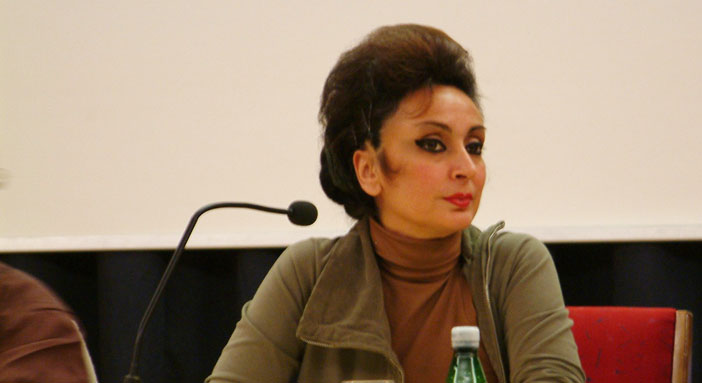İnsan hakları savunucusu Eren Keskin’in Özgür Gündem gazetesindeki köşe yazısı şöyle;
“Geçtiğimiz hafta Avrupa İnsan Hakları Mahkemesi’nde (AİHM) önemli bir dava görüldü. Kamuoyunda, Doğu Perinçek “davası” olarak bilinen, bu davada İnsan Hakları Derneği, Adalet Hakikat ve Hafıza Merkezi ve Toronto merkezli Uluslararası Soykırım ve İnsan Hakları Çalışmaları Enstitüsü ile birlikte müdahil olma talebinde bulunduk. Bu talebimiz AİHM tarafından kabul edildi.
Yani biz bu davada, Doğu Perinçek’in karşısında yer aldık.
Yıllardır, düşünceleri nedeniyle yargılanan ve bu yüzden cezaevinde yatan biri olarak, Doğu Perinçek’in sözlerinin kesinlikle, ‘düşünce özgürlüğü’ kapsamında değerlendirilemeyip açıkça suç işlemeye teşvik olarak değerlendirilmesi kanısındayım.
İşte bu teşvik sonrasıdır ki; Hrant Dink, Rahip Santoro, Sevag Şahin Balıkçı katledilmişlerdir.
Doğu Perinçek ve onun gibilerinin, Hrant Dink ve Orhan Pamuk davalarındaki tavırlarını hatırlayalım!
Kendilerine, 1915 Soykırımı’nın mimar ve uygulayıcılarından olan Talat’ın ismini koyarak, kendilerini utanmadan ‘Talat Paşa komitesi’ olarak ilan ettiler. Ve bu komite duruşma kapılarında şiddet çağrıları yaptı. Ve yeni ölümlere, yeni suçlara neden oldular.
Davanın Strasbourg’da görüldüğü gün, biz de İnsan Hakları Derneği ve Hafıza Merkezi olarak, bir basın toplantısı yaptık.
Ne yazık ki, basın bizim sözlerimize fazla yer vermedi.
Ben, bugün köşemde bu basın açıklamasından bazı alıntılar yapmak istiyorum.
‘Ermeni Soykırımı’nın inkarı, coğrafyamızda ırkçı nefreti kışkırtmakta ve Ermeni karşıtı kesimleri cesaretlendirmektedir. Gerek AİHM kararı gerekse bizim üçüncü taraf olarak sunduğumuz dosya, 1915-1917 katliamlarının tarihsel gerçekliği veya kesin yasal tanımlaması ile ilgili değildir. Mesele, Perinçek’in ifadelerinin, ırkçılık ve ayrımcılığa yol açtığıdır. Bu anlamda, büyük dairede yeniden görülecek olan dava, ilk kez Yahudi Soykırımı dışındaki bir bağlamda inkar, önemsizleştirme veya meşrulaştırmanın yol açtığı ayrımcılığı ele alacağı için özel bir önem taşımaktadır.
AİHM’in, Perinçek lehine kararı, inkar ve ayrımcılığı İsviçre Ermenileri üzerindeki etkileriyle sınırlandırmış, sözlerinin Türkiye Ermenileri üzerindeki doğrudan etkisini göz ardı etmiştir.
Doğu Perinçek’in de üyesi olduğu Talat Paşa komitesi Türkiye’de faaliyet göstermektedir. Ve hedef kitle Türkiye toplumudur. Yaptığı açıklama nedeniyle Ermenilerin sesine kulak verenlere izin verilmeyeceği, dünyanın öbür yanında bile olsa hadlerini bildirileceği mesajı, Türkiye toplumuna verilmiştir.
İnkar, basitçe, ‘soykırım olmamıştır’ demek değildir. İnkar, bir halkın geri döndürülemez, telafi edilemez şekilde yok edilişini haklı çıkarmayı gerektirir.
Kısacası soykırım inkarı, Türkiye’de, Ermenilerin hala tehdit altında yaşamalarının, devlet eliyle olanak tanınan en önemli başlıca nedenidir.
İnkar nefrete yol açar ve nefret öldürür.
Bizler, insan hakları savunucuları olarak bunları söylerken, devlet ve siyasi partiler tüm güçleriyle Doğu Perinçek’in yanında yer aldılar.
Doğu Perinçek, CHP milletvekilleri, AKP milletvekilleri ve MHP milletvekilleri fotoğrafta sanki ‘İttihatçı Soykırımcılar’ biziz diyorlardı.
Şimdi AİHM’in önünde bir sınav var. Vereceği kararla ya ırkçı nefretin önünü açacak ya da dur diyecek.
Önemli bir sınav bu!




